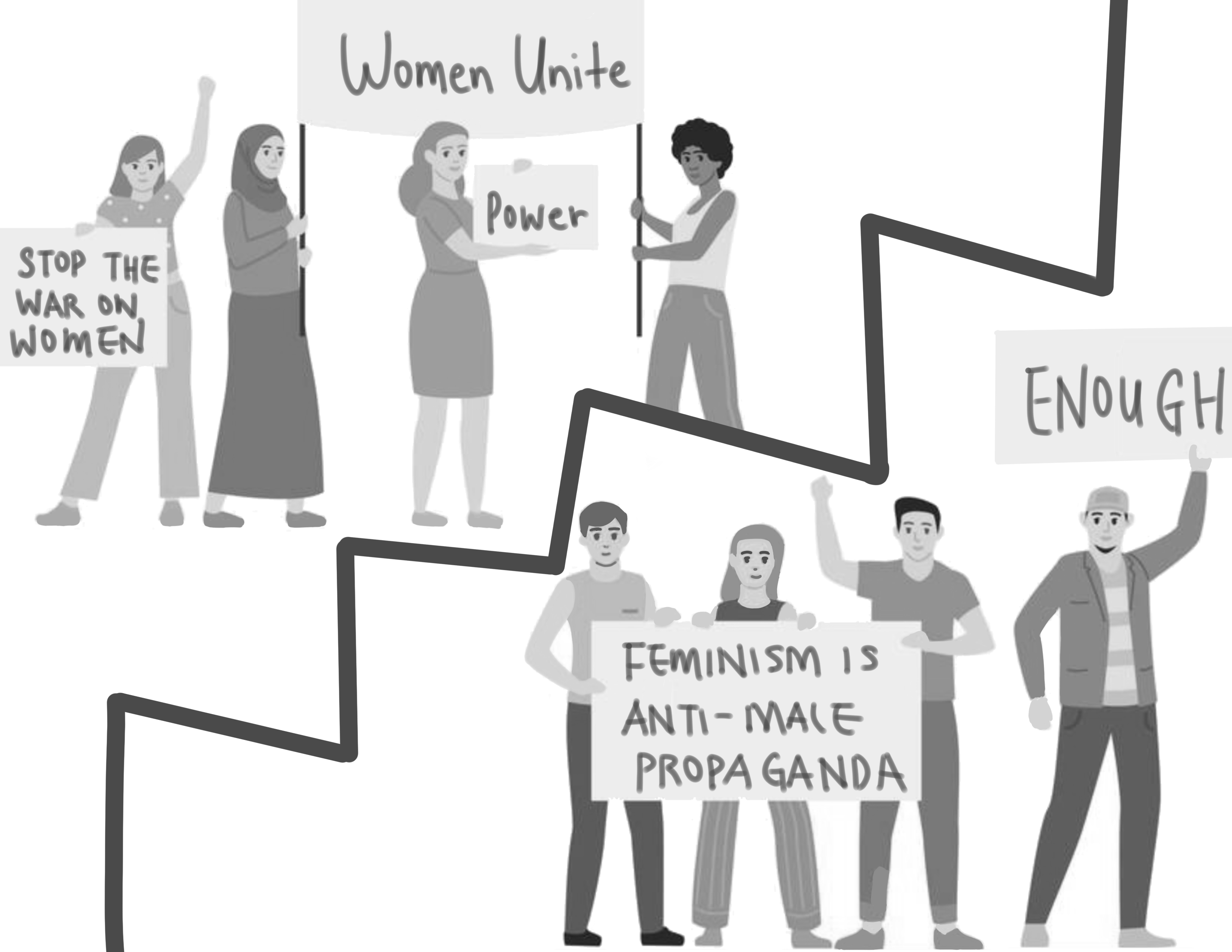Feminism is Misunderstood
September, 2023
“She’s Barbie. He’s just Ken.” This tagline from “Barbie” (2023) brought the topic of feminism into the spotlight upon the movie’s anticipated arrival in cinema. While garnering support from a majority of the public, an enraged side of the audience jumped to accuse the feminist film with claims of misandry and “toxic femininity,” with the movie even being dubbed as “anti-male propaganda” by USA TODAY. This is an all too common response to any form of feminist media, with the negative connotations surrounding feminism leading to misconceptions about the goal of the movement: achieving equal rights and opportunities for men and women.
Not all supporters of the principles of feminism are keen on identifying with the word itself. While 94 percent of people believe that gender equality is important, according to Pew Research Center, a GenForward study found that only 12 percent of Hispanic women, 21 percent of African-American women, 23 percent of Asian women, and 26 percent of white women identify as a feminist. So why the discrepancy? The hesitation to identify with the movement partly stems from the belief that all feminists are extremist. A study from Routledge found that the associations of the term “feminism” with “man-hating” and lack of femininity, an association amplified by the widespread slandering of feminist media, were key factors in peoples’ decision to reject the label of being a “feminist.”
Especially for those born into a world where women have the right to vote, one where so much progress towards equal rights has already been made, it is easy to view modern feminism as obsolete, with ignorant individuals harboring misconceptions that men and women already have equal rights. From a 2020 study by the Pew Research Center, while 64 percent of Americans see feminism as empowering and 42 percent as inclusive, in the same sample size, 45 percent also saw it as polarizing and 30 percent as outdated. Why is feminism seen as outdated when misogyny still persists in the present day? While women make up two-thirds of the world’s working hours, they only earn 10 percent of global income, a reverberating effect of women globally spending three times as many hours on unpaid domestic work as men. Additionally, there are still 18 countries in which husbands can legally bar their wives from working. This lopsided distribution of unpaid care and domestic work prevents women from entering the labor market, with only 47 percent of women at working age participating in the labor market, compared to 74 percent of men, according to the United Nations in 2020. While achieving perfect 50:50 male to female ratios in sex-based economic studies is unlikely, feminism aims for equal opportunities so that sex isn’t a burdensome factor in an individual’s livelihood or career aspirations. Currently, women make up two-thirds of the world’s illiterate population, a result of gender discrimination stemming from the normalization of women’s sole roles as family caretakers in patriarchal social systems. Poorer communities often favor boys when investing in education, while girls face large amounts of gender-based violence at school. These are all factors contributing to the gender gap in education, a major accelerant of the patriarchy. Under the patriarchal social system, men hold a disproportionate amount of power in society. Out of the 11,000 people who have served in the U.S. House of Representatives throughout history, only 375 have been women. Even today, only 28.7 percent of Congress are women. Being underrepresented in politics directly leads to being underrepresented in decision-making at all levels, consequently suppressing the female voice, undermining their ability to rule on important regulations regarding female focused issues. The International Parliamentary Union conducted research proving that an increased presence of women in politics had a positive impact in moving issues of violence against women’s health and education onto the political agenda. The ideals that feminism stands for cannot be silenced when so much misogyny and underrepresentation of women in many fields continues to exist.
What anti-feminists often fail to notice is that the patriarchy, the very social structure feminism aims to deconstruct, ultimately harms both men and women. Under the patriarchy, a man’s sense of personal worth is reduced to shallow outward achievements: the amount of money he makes, his social standing, the attention he gets from women. Without valuing and loving themselves based on holistic properties, men may feel worthless and easily disposable, and struggle under the expectations set up for them by a patriarchal society. The rigid gender roles that define “masculinity” also pressure men to not seek emotional help when needed, contributing a significant influence on the rise of male suicide rates, with men dying by suicide four times more than women.
As more media begins to focus on feminism, it’s important to interpret them with a clear eye and remember feminism’s principles of equality. PHS students who wish to become allies for marginalized communities can begin by assessing their own privileges and understanding the true principles of social justice movements. When having conversations about marginalization, instead of promoting division, it is important to maintain an open mind and respect for others so that these equality issues can be effectively tackled. Ultimately, achieving equality starts with having some empathy.